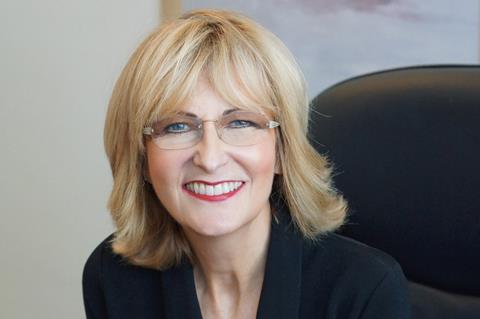As an avenue for career progression, becoming a solicitor advocate is not the big attraction it was once held out to be. The brand needs a refresh, hears Catherine Baksi
The low down
Solicitor higher court advocates arrived 30 years ago. Just under 7,000 have achieved that rank, but commercial pressures mean that dwindling numbers are making use of their higher rights to appear in court. They are vastly outnumbered by the bar. Few apply to be King’s Counsel and hardly any succeed. The independent group that spoke for solicitor advocates has been wound up, and even those who succeed look with envy at the training offered at the bar. Small wonder that solicitor advocates are looking for a revamp of their brand, and a champion to support them and solicit new recruits. So what’s next? Many say better training would help.
Thirty years after their creation, solicitor advocates claim that they still face prejudice from some barristers and judges. They are calling for the ‘brand’ to be better promoted.
Established solicitor advocates want to encourage more solicitors who have passed the higher rights qualification to carry out advocacy in court, particularly in more serious and complex cases in which they can acquire the confidence to apply to become King’s Counsel.
For the third year running in 2025, there was only one solicitor in the list of successful King’s Counsel – along with 104 barristers. Four others had applied.
In common with most recently appointed solicitor KCs, the successful applicant, Sheila Ahuja, was an arbitrator at a City law firm – co-head of the India group at A&O Shearman.
Body blow
In a further blow, solicitor advocates have lost their specialist group. The Solicitors’ Association of Higher Court Advocates (SAHCA) – founded in the same year that they were permitted to acquire higher rights of audience – has been wound up, following a members’ vote at a final general meeting of the association. SAHCA’s website was taken down this month.
Once billing itself as ‘the only independent voice for solicitor advocates’ in England and Wales, the group sought to promote ‘parity and equality of opportunity with the bar,’ providing ‘high-quality advocacy training at non-profit rates’, networking events and support for its members.
Its membership, it once noted, was drawn from a broad range of practitioners, from magic circle firms to sole practitioners ‘with one shared goal – excellence!’.
Will Richmond-Coggan, a partner at the law firm Freeths and twice chairman of the group, tells the Gazette: ‘The decision to wind up SAHCA was a difficult one and we explored a number of alternatives before going down that route with the support of our members.’

The annual £50 joining fee, which was recoverable in full when booking training provided by the group, was hardly unreasonable. The fact that it was too high for many to afford is perhaps an indictment of the low level of fees for some work, especially for criminal legal aid cases.
As Richmond-Coggan explains: ‘Historically, our core membership was comprised of criminal legal aid advocates and they and their firms were simply not in a position to afford the membership and training fees we needed to charge in order to operate, even on a not-for-profit and volunteer basis.’
Other factors in the group’s demise, he says, included the ending of the mandatory requirement for solicitors to complete continuing professional development training and the disruption caused by the pandemic to its in-person events.
He hopes that other bodies will step in to ‘provide the structured and expert training that solicitor advocates need to be able to compete on a level playing field with advocates from the bar, and to be a vocal champion for the solicitor advocacy community’.
Andrew Morris, a senior associate and higher court advocate at ITN Solicitors who specialises in criminal law, says that firms, including his own, provide in-house advocacy training. But he would like to see an Inn of Court or advocacy group offering help, to increase the confidence of his colleagues to ‘take on bigger cases and feel they will be more accepted on a level playing field with the bar’. He also calls for the ‘brand’ of solicitor advocate to be better promoted.
Law Society to fill the training gap?
Others suggest that the Law Society should fill the gap. Its current president, Richard Atkinson, is a solicitor advocate. He expresses disappointment that SAHCA has been disbanded. Chancery Lane does not rule out stepping into the breach. ‘The Law Society recognises the critical importance of ongoing professional development for solicitor advocates,’ says Atkinson. The Society ‘will review the demand for a network in the absence of SAHCA and address this in due course’.
He notes that the initial qualification process ‘ensures a strong foundation’, but stresses that advocacy in the higher courts ‘demands continuous learning and skills refinement’ which he encourages members to undertake.
‘We remain committed to ensuring advocacy is conducted at the highest level and actively engage with stakeholders to ensure our members have access to relevant training to maintain high standards throughout their career,’ Atkinson says. ‘We encourage advocates working with vulnerable clients to complete the advocacy and vulnerable training course which we facilitate.’
Implementation in 1994 of the Courts and Legal Services Act 1990 allowed solicitor advocates to conduct Crown court trials and appear in the High Court, Court of Appeal and House of Lords (the forerunner to the Supreme Court), after completing additional assessment requirements.
Coupled with the review by Lord Carter of Coles of publicly funded legal services in 2006, the change sparked talk of fusion between the two branches of the profession, if solicitors sought to retain more cases – and money – in-house.
Three decades later, the most recent figures from the Solicitors Regulation Authority show there are around 6,900 solicitors who have passed the higher rights of audience qualification – including over 2,700 with the criminal qualification, and over 2,800 with the civil qualification. More than 1,300 hold both.
This compares to 170,000 practising solicitors in England and Wales and around 17,500 practising barristers.
Qualifying as a solicitor advocate
In England and Wales, a right of audience refers to a lawyer’s ability to appear and conduct proceedings in court on behalf of their clients. At the point of admission, all solicitors automatically have rights of audience in magistrates’ courts and the county court. But, as the Solicitors Regulation Authority explains on its website, to represent clients in the higher courts in criminal or civil matters, a solicitor must pass either the criminal or civil ‘higher rights of audience’ (HRA) qualification.
Separate assessments for criminal and civil specialists test advocacy skills, the ability to conduct a full trial, knowledge of evidence, procedure, witness handling and ethics in the higher courts.
Following a consultation in 2019, the regulator decided to adopt a single assessment provider, instead of the four it has previously used, in order to standardise the assessments. At the end of a tender process, it has appointed the University of Law as the sole provider for the HRA qualification.
The SRA will be applying to the overarching regulator, the Legal Services Board, to approve the change. If it agrees, then the single assessment provider will take over in October.
The SRA says that it has heard from some stakeholders that moving to a single assessment provider could reduce the number of individuals qualifying if it makes the HRA qualification ‘more challenging’.
The SRA claims that the switch is ‘unlikely to result in a decline in the number of solicitors looking to obtain the qualification’, but commits to monitoring the impact.
‘There was discrimination and prejudice’
Family and criminal law specialist June Venters KC, who founded Venters Solicitors, became the first female solicitor advocate silk in 2006 and is now dual-qualified as a barrister. Qualifying in 1984 in the days before solicitors had higher rights, she was limited to the magistrates’ and county courts, but nevertheless says: ‘I couldn’t get into court quick enough.’
A rule enabled solicitors to speak in the High Court in care proceedings prior to 1994 and Venters ‘seized the opportunity’. By the time higher rights were introduced, she had been conducting High Court cases regularly.
Starting out, Venters recalls that ‘without a doubt, there was discrimination and prejudice’ because she was a solicitor; and ‘tremendous resentment’ from the bar, which she says ‘to some extent I get, because I was swimming in their pond’.
Now, she says, things are fairer, suggesting: ‘If a solicitor advocate is competent and capable then they have the respect. If they are not competent and capable, it’s not because they’re a solicitor.’
'The bar’s advocacy training is second to none – it is superb. It has always been a concern to me that solicitors do not have that opportunity'
June Venters KC
While solicitor advocates do not have to wear a wig in court, Venters says that she always did to ensure a level playing field with barrister opponents. She applied for silk at the suggestion of a judge before whom she had appeared and later joined Lamb Building as a door tenant.
As an advocacy trainer for barristers, Venters gained an insight into bar training and questions why solicitors do not receive the same level, especially post-qualification. ‘The bar’s advocacy training is second to none – it is superb. It has always been a concern to me that solicitors do not have that opportunity,’ she laments.

Criminal defence specialist and founder of MK Law, Manisha Knights, qualified as a solicitor advocate in 2006, when she says it had become a popular thing to do. Now, she suggests, that appetite has reduced and criminal specialist solicitor advocates are increasingly converting to become barristers. Over the past two years, Knights has lost three of her solicitor advocates to the criminal bar.
She says this is because the criminal bar is so busy and chambers are looking for people to join. Moreover, the criminal bar is now seen as more accessible and has shed its reputation as being only for a narrow group of people who have attended certain schools or universities.
Knights would like to see more solicitor advocates, but says the profession is not geared up to train, support and promote them or to encourage new recruits.
Richmond-Coggan, a dual-qualified barrister and solicitor advocate who specialises in data protection, media, information and privacy law, suggests that numbers on the civil side are growing, though slower than that side of the profession generally. He also notes that the number of solicitors using their higher rights is diminishing.
ITN Solicitors’ Morris suggests that the practicalities of doing the job make it hard for some to use their higher rights: ‘Often partners have higher rights and are very good and experienced, but they have to run the firm and being in the Crown court is very intense – you’re dealing with serious work, late instructions, difficult clients and cases.’ Morris is instructed in cases by solicitors in his own firm.
While he suggests that the overall training for solicitors, which covers police station, as well as court work, is ‘more holistic’ than members of the bar receive, he adds that the training for criminal barristers is ‘on a different level’.
Knights had wanted to become a barrister, but with two children by the time she had gained her law degree, she was advised to qualify as a solicitor advocate. A trial advocate, who regularly appears at London’s Old Bailey, she is one of the few solicitor advocates who chooses not to wear the horsehair wig in court. She feels it is easier to make a connection with the jury by not looking as though she has stepped out of the 18th century.
Starting out, Knights says she encountered ‘pre-judgement and a perception that we were inferior to the bar’. While that diminished as people got to know her, new solicitor advocates still face ‘stigma – that the bar is the proper way to do advocacy’.

Natural progression
ITN’s Morris was admitted as a solicitor in 2005. Then working at Hine Solicitors, which had an in-house advocacy department comprising barristers and solicitors, he conducted magistrates’ court hearings, including trials, daily. Obtaining his higher rights was a ‘natural progression’. When he began doing higher court advocacy in 2009, Morris says he was ‘an anomaly’ and encountered prejudice from some barristers and judges.
Now, having done the job for 16 years and acting as a ‘leading junior’ – leading members of the bar in cases – Morris says that for the most part, ‘prejudice falls away’.
He wears a wig because ‘it creates a level playing field and takes away an irrelevant question [as to why he is not wearing one] from the jury and client,’ adding ‘there is no difference between us and the bar, so there is no reason not to wear it’.
Sir Gary Hickinbottom, a solicitor, former justice of the Court of Appeal and now president of Welsh Tribunals, was honorary president of SAHCA. He suggests that the cost of applying for silk – £2,225 plus VAT with an appointment fee for successful applicants of £3,900 plus VAT – may deter some solicitor advocates from applying.
While the success rate for solicitors is not high, he notes that the successful candidates ‘tend to be quite excellent in their, often narrow, field’, and questions why so few criminal solicitor advocates obtain silk.
The reason given by Knights is that so few are doing trials, especially in larger cases or with ‘leading’ briefs. Most solicitor advocates, she says, are taking only ‘junior’ briefs and some just do guilty pleas and sentencing.
Knights hopes to try applying for silk ‘at some point’, once she has undertaken a wider spread of cases and ‘leading’ briefs.
'Due to commercial reasons and lack of structural support, solicitor advocates are starting to suffer'
Will Richmond-Coggan, Freeths
Alluding to the fact that solicitor advocate silks have so far been mainly drawn from among arbitrators in City law firms, Richmond-Coggan suggests that is a ‘self-perpetuating’ cycle, as junior advocates see the type of advocacy that is recognised and rewarded.
Most of his advocacy is written – drafting pleadings, preparing strategic advice and opinions on merits. Richmond-Coggan would like to see written advocacy recognised more by the King’s Counsel Appointments (KCA) selection process.
‘Fewer cases are going to trial due to the enormous cost of litigation, but KCA has always depended on the assessment of judges regarding the quality of advocacy,’ he notes. ‘If someone drafts compelling advice that results in the other party throwing in the towel, the judge will never see it.’
For the Law Society, Atkinson says: ‘We are working alongside King’s Counsel Appointments to help eligible solicitors demonstrate their unique skills and experience, including written advocacy, when applying.’
Richmond-Coggan concludes with a warning: ‘The introduction of solicitor higher court advocates was meant to open up avenues for career progression for solicitors, but my big concern, as exemplified by the demise of SAHCA, is that due to commercial reasons and lack of structural support, solicitor advocates are starting to suffer.’
Catherine Baksi is a freelance journalist
































1 Reader's comment